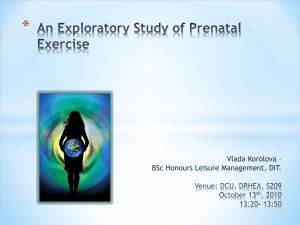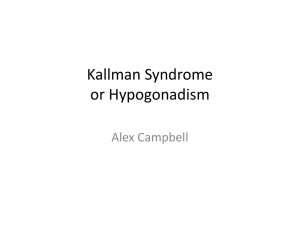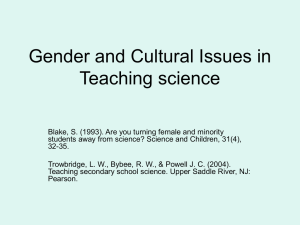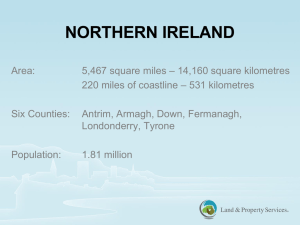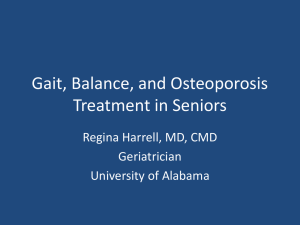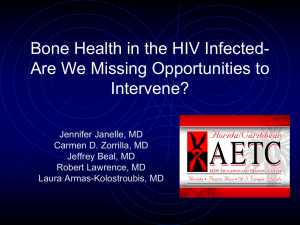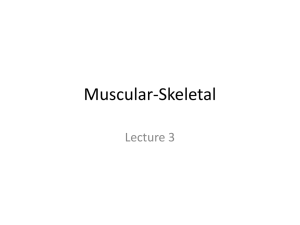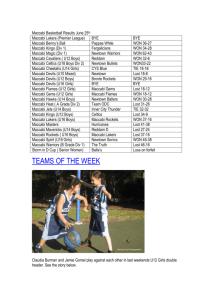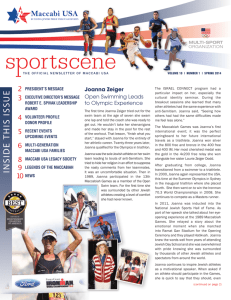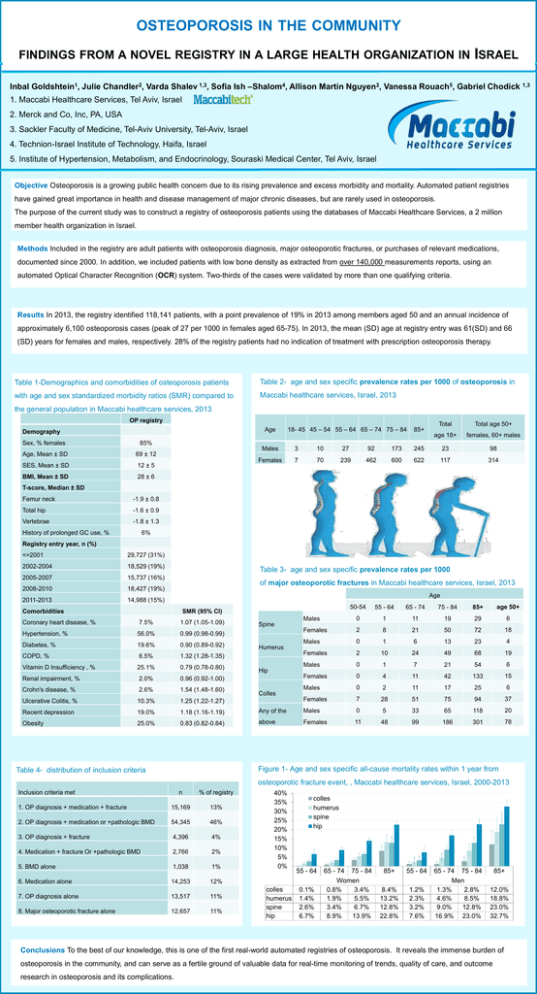
OSTEOPOROSIS IN THE COMMUNITY
FINDINGS FROM A NOVEL REGISTRY IN A LARGE HEALTH ORGANIZATION IN ISRAEL
Inbal Goldshtein1, Julie Chandler2, Varda Shalev 1,3, Sofia Ish –Shalom4, Allison Martin Nguyen2, Vanessa Rouach5, Gabriel Chodick 1,3
1. Maccabi Healthcare Services, Tel Aviv, Israel
2. Merck and Co, Inc, PA, USA
3. Sackler Faculty of Medicine, Tel-Aviv University, Tel-Aviv, Israel
4. Technion-Israel Institute of Technology, Haifa, Israel
5. Institute of Hypertension, Metabolism, and Endocrinology, Souraski Medical Center, Tel Aviv, Israel
Objective Osteoporosis is a growing public health concern due to its rising prevalence and excess morbidity and mortality. Automated patient registries
have gained great importance in health and disease management of major chronic diseases, but are rarely used in osteoporosis.
The purpose of the current study was to construct a registry of osteoporosis patients using the databases of Maccabi Healthcare Services, a 2 million
member health organization in Israel.
Methods Included in the registry are adult patients with osteoporosis diagnosis, major osteoporotic fractures, or purchases of relevant medications,
documented since 2000. In addition, we included patients with low bone density as extracted from over 140,000 measurements reports, using an
automated Optical Character Recognition (OCR) system. Two-thirds of the cases were validated by more than one qualifying criteria.
Results In 2013, the registry identified 118,141 patients, with a point prevalence of 19% in 2013 among members aged 50 and an annual incidence of
approximately 6,100 osteoporosis cases (peak of 27 per 1000 in females aged 65-75). In 2013, the mean (SD) age at registry entry was 61(SD) and 66
(SD) years for females and males, respectively. 28% of the registry patients had no indication of treatment with prescription osteoporosis therapy.
Table 1-Demographics and comorbidities of osteoporosis patients
Table 2- age and sex specific prevalence rates per 1000 of osteoporosis in
with age and sex standardized morbidity ratios (SMR) compared to
Maccabi healthcare services, Israel, 2013
the general population in Maccabi healthcare services, 2013
OP registry
Age
Demography
Sex, % females
85%
Age, Mean ± SD
69 ± 12
SES, Mean ± SD
12 ± 5
BMI, Mean ± SD
28 ± 6
18- 45 45 – 54 55 – 64 65 – 74 75 – 84
85+
Total
Total age 50+
age 18+
females, 60+ males
Males
3
10
27
92
173
245
23
98
Females
7
70
239
462
600
622
117
314
T-score, Median ± SD
Femur neck
-1.9 ± 0.8
Total hip
-1.6 ± 0.9
Vertebrae
-1.8 ± 1.3
History of prolonged GC use, %
6%
Registry entry year, n (%)
<=2001
29,727 (31%)
2002-2004
18,529 (19%)
2005-2007
15,737 (16%)
2008-2010
18,427 (19%)
2011-2013
14,988 (15%)
Table 3- age and sex specific prevalence rates per 1000
of major osteoporotic fractures in Maccabi healthcare services, Israel, 2013
Age
Comorbidities
50-54
55 - 64
65 - 74
75 - 84
85+
age 50+
Males
0
1
11
19
29
6
Females
2
8
21
50
72
18
Males
0
1
6
13
23
4
Females
2
10
24
49
68
19
Males
0
1
7
21
54
6
Females
0
4
11
42
133
15
Males
0
2
11
17
25
6
Females
7
28
51
75
94
37
SMR (95% CI)
Coronary heart disease, %
7.5%
1.07 (1.05-1.09)
Hypertension, %
56.0%
0.99 (0.98-0.99)
Diabetes, %
19.6%
0.90 (0.89-0.92)
COPD, %
6.5%
1.32 (1.28-1.35)
Vitamin D Insufficiency , %
25.1%
0.79 (0.78-0.80)
Renal impairment, %
2.0%
0.96 (0.92-1.00)
Crohn's disease, %
2.6%
1.54 (1.48-1.60)
Ulcerative Colitis, %
10.3%
1.25 (1.22-1.27)
Recent depression
19.0%
1.18 (1.16-1.19)
Any of the
Males
0
5
33
65
118
20
Obesity
25.0%
0.83 (0.82-0.84)
above
Females
11
48
99
186
301
78
Spine
Humerus
Hip
Colles
Figure 1- Age and sex specific all-cause mortality rates within 1 year from
Table 4- distribution of inclusion criteria
osteoporotic fracture event, , Maccabi healthcare services, Israel, 2000-2013
Inclusion criteria met
n
% of registry
1. OP diagnosis + medication + fracture
15,169
13%
2. OP diagnosis + medication or +pathologic BMD
54,345
46%
3. OP diagnosis + fracture
4,396
4%
4. Medication + fracture Or +pathologic BMD
2,766
2%
5. BMD alone
1,038
1%
6. Medication alone
14,253
12%
7. OP diagnosis alone
13,517
11%
8. Major osteoporotic fracture alone
12,657
11%
40%
35%
30%
25%
20%
15%
10%
5%
0%
colles
humerus
spine
hip
colles
humerus
spine
hip
55 - 64
0.1%
1.4%
2.6%
6.7%
65 - 74 75 - 84
Women
0.8%
3.4%
1.9%
5.5%
3.4%
6.7%
8.9%
13.9%
85+
55 - 64
8.4%
13.2%
12.8%
22.8%
1.2%
2.3%
3.2%
7.6%
65 - 74 75 - 84
Men
1.3%
2.8%
4.6%
8.5%
9.0%
12.8%
16.9% 23.0%
85+
12.0%
18.8%
23.0%
32.7%
Conclusions To the best of our knowledge, this is one of the first real-world automated registries of osteoporosis. It reveals the immense burden of
osteoporosis in the community, and can serve as a fertile ground of valuable data for real-time monitoring of trends, quality of care, and outcome
research in osteoporosis and its complications.



